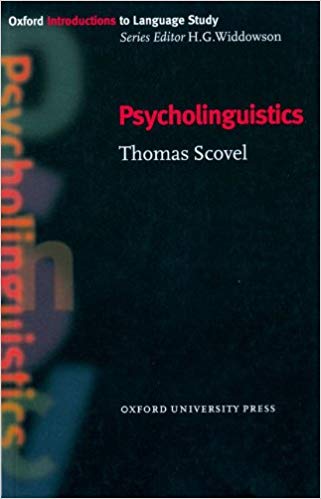Psycholinguistics by Thomas Scovel

“History is marked by the very human urge to explore and venture. […] But it has only been very recently […] that we have dared to explore the most proximal portion of our universe – the human mind.”
Daughter: Somebody’s at the door.
Mother: There’s nobody at the door.
Daughter: There’s yesbody at the door.
(from P. Reich. 1986. Language Development. Prentice-Hall, page 142)
The book will attract not only linguists and psychologists, it will be useful to teachers of foreign languages, who want to work more effectively with pupils, showing professionalism not only in linguistics, but also in psychology.



